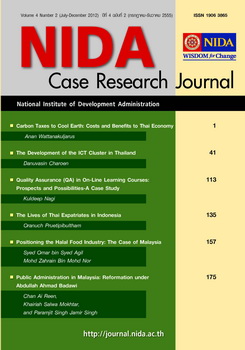Public Administration in Malaysia: Reformation under Abdullah Ahmad Badawi
Keywords:
Public Administration, Reformation, LeadershipAbstract
Public Administration of Malaysia is an essential link between citizens and governments. Whenever there is a change in the leadership of the government the people want government to meets their needs. The people want effective and efficient public administration, including public sector management, promote and strengthen democracy and good governance. Thus, when Tun Abdullah bin Haji Ahmad Badawi who is fondly called as Pak Lah took over as Prime Minister on 1st November 2003 following 22 years of Tun Dr Mahathir’s leadership, the cry from the public was the same as ever. Administration is Abdullah forte. With more than 30 years’ experience in public administration, Abdullah introduced a series of bold reforms during his term a Prime Minister. Evidently, many new policies and programs were initiated to reform Malaysia into a more productive and competitive nation. He also declared outright war on corruption; patronage and abuse of trust and improved the public governance to serve the people. In his managerial reform, he demanded more civic virtue, ethic, and transparent governance. Hence, the consequences of the reformation by Abdullah were studied in the case.Downloads
How to Cite
Reen, C. A., Mokhtar, K. S., & Singh, P. S. J. (2014). Public Administration in Malaysia: Reformation under Abdullah Ahmad Badawi. NIDA Case Research Journal, 4(2), 175–183. retrieved from https://so04.tci-thaijo.org/index.php/NCRJ/article/view/25106
Issue
Section
Case Study





